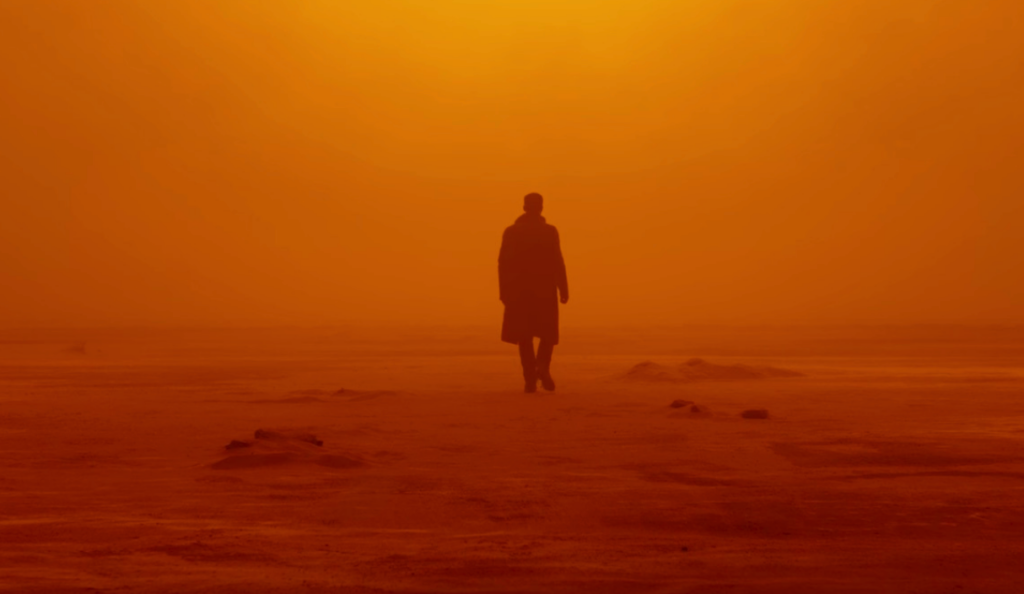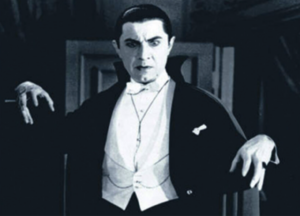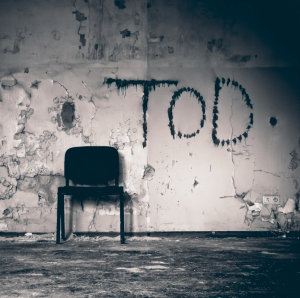
Horror, back in the day, represented some of the greatest works of literature. In my POV, it still does. Sadly, however, horror ran into a branding problem in the 70s and 80s and many began conflating slasher-hack-up-busty-coeds with horror.
Sure, slasher flicks are horror but not all horror are slasher flicks.
Horror is incredibly difficult to write well. Guts and gore might work for teenage boys, but to really be able to write something that gets under people’s skin? That makes them walk away and ask the hard questions? Fiction that allows a safe way for audiences to see and study all the ugliness in this world so they might better appreciate the good?
No simple task.
In a recent post, we delved into how guilt, shame and regret are the trifecta of great stories. We’ve discussed how probing the shadow sides of human nature is what can separate the mundane from the magnificent. We’ve talked about how crucial motivation can be in fiction (even motivations that might not make sense to the average person).
Think Dahmer.
Just not while eating.
Horror Serves a Purpose
All fiction has its place. Even horror. Some fiction is purely fun and escape and the world needs more fun and feel good. Certain books are simply a holodeck to get away from the mundanities of life, the overwhelming pressures of being an adult (kids, laundry, bills, car repairs). They serve as a place of rest and we all could use more of that!
But that isn’t all fiction.
Many writers (myself included) desire to go far deeper with our fiction, explore wounds and human issues, poke and prod at larger social dilemmas. We wield the narrative form like a scalpel, exposing what is necrotic or diseased so it might be removed and the patient (humanity) cured.
The worst diseases are often unseen. A person can look perfectly healthy yet be riddled with cancer, a ticking time bomb about to collapse. Horror appreciates that, frequently, what scares us the most, is a lot more ubiquitous than mega-tornadoes flinging Great White Sharks at the unwitting public.
It can be a government system, a religion, a medical system, a social norm we thought we could trust but if we ONLY knew the TRUTH!
Horror and History

I strongly recommend for any author to read Stephen King’s Danse Macabre. He does a really brilliant job of explaining the different kinds of horror, the tools in the author’s toolbox (shock, gore, fear). But what I loved the most was when King explained the history of horror.
Horror is almost always reflective of the times. It is no mere coincidence that Mary Shelley penned Frankenstein right at the dawn of the scientific age, when society was trading in the church pews for the laboratory. Then Bram Stoker’s Dracula came out during the notoriously prudish Victorian age and was a commentary (obliquely) on sex.
Fast forward into the 20th century and you’ll note all the alien invasion movies landed—*bada bump snare*—right about the time the Russians launched Sputnik. We can thank the nuclear age for all the giant creature features. Then Invasion of the Body Snatchers “coincidentally” hits theaters right around The Red Scare?
They can look just like friends, family, loved ones, but NO! They’re actually invading communists aliens!
Move a bit farther into the 20th century and Texas Chainsaw Massacre broke ALL the horror rules. If one could make it until dawn, then SAFE! Except Vietnam was the first widely known unconventional war. The old rules no longer applied. No one was safe anywhere from anyone…night or DAY.
Then we get into the 70s-80s and all the movies parallel with The Satanic Panic. By the 90s, the USSR collapsed, The Wall had come down, and we (Americans) were feeling pretty good.
Horror then, pushed to its extreme, becomes its counterpart…comedy. Welcome the Scary Movie franchise.
***Later? Hello, Sharknado!
But this brief comedic respite of the 90s was short-lived. In the aughts zombies took off right about the same time the internet and social media hit the scene. The world was smaller than it had ever been and we had genuine fear of the mob.
Technology was changing faster than we could keep pace, quicker than we could appreciate the long-term ramifications. Were we part of the problem?
The Ring is a great exploration into that very concept.
These days? Every kind of speculative fiction is up for grabs. It is a terrifying world and audiences need/crave a tangible way to face and deal with what scares them the most.
What is Speculative Fiction?
Speculative fiction is an umbrella term used to describe narrative fiction with supernatural or futuristic elements. This includes but it not necessarily limited to fantasy, science fiction, horror, utopian, dystopian, alternate history, apocalyptic fiction, post-apocalyptic fiction.
Basically, all the weird stuff.
(And forgive me because today we are using seriously broad strokes.)
But what makes the difference between the laughable 1950s science fiction matinees and the long-forgotten pulp fiction versus the works of Philip K.Dick? What makes The Road literature even though it’s a post-apocalyptic novella? Why is Heart-Shaped Box or Wool so deeply disturbing and simultaneously resonant?
Why do star-packed big-budget films like Jupiter Ascending fizzle? Yet Blade Runner is a science fiction staple worthy of being remade for the newest generations to enjoy?
Horror & Plot
It’s easy to dismiss speculative fiction as escapist fluff and some of it is. But, when we look to the great speculative fiction, we see the authors are disguising explosive social commentary within narrative so it can be viewed and experienced behind the safety-glass/containment field of story.
By using story, we writers place the reader into this world then (hopefully) generate empathy that is impossible to create any other way. I’ve seen the movie I, Robot countless times and I bawl EVERY time during this scene.
Yeah this is me…
Stepford Wives was a commentary on the women’s liberation movement. Animal Farm was a treatise on socialism and the dangers of groupthink. The peril that comes with handing over too much power to those who claim to have noble and benevolent intentions without asking the hard questions.
Brave New World was Huxley’s stab at a culture propelled by temporary highs, unlimited choices and instant gratification while rejecting that which endured (love, family, marriage), because that which lasted required time, sacrifice and work. He showed us an eerily accurate picture of what society driven to fulfill only hedonistic pleasure could become if we were not vigilant…and is now probably rolling in his grave.
*Makes note to write story about Huxley haunting TikTock*
Horror and Commentary
Do Androids Dream of Electric Sheep? was Philip K. Dick’s commentary on artificial intelligence and just because we can play God, should we? What sort of moral implications are involved? These are issues we are now facing for real, that are no longer fiction and we are being tasked with the tough questions.
Is it wise to create and sell sex robots that come with a “frigid” setting? What happens when we extend the logic of this? Blade Runner. We get Blade Runner. Also a bizarre escalation/reinvention of the previously mentioned Stepford Wives.
All these great science breakthroughs that float across our newsfeed are now fertile ground for new and possibly even better stories that prod the science with ethical dilemmas.
We show the world it’s upside down and maybe even ways to right it.
I believe that the great speculative fiction writers have always been the conscience of culture, the voice that whispers things like, “Just because we can, doesn’t mean we should.” Or, “This really is a big deal and can go ugly really easily.”
Horror does a lot of that as well. Good horror writers tap into the subconscious angst and gives it a face. What happens when society is allowed to continue to devalue human life? When mobs are handed permission to call the shots? Let’s chat about this after watching The Purge.
In Horror: To Make it BIGGER, Make it Smaller
When we care about everything, we care about nothing. Additionally, the human mind can’t truly grasp the loss of a billion lives. It doesn’t resonate because it can’t compute.
Thus the great spec-fic plots make the big small. We tell a small story of one person or a group of people as it plays out on the far larger stage. World War Z anyone?
This is why so many Hollywood movies about asteroids hitting the planet fizzle while The Road simply guts us.
Not All Big Stories are Big
Sometimes speculative fiction isn’t addressing something big, rather it dives into the intimate and deeply personal. Heart-Shaped Box is about a vengeful ghost out to destroy an aging rock star and anyone he loves. While the supernatural elements are terrifying, what is so beautiful and moving about this story is how the characters are forced to face and conquer inner demons they would have been happy to bury if not running for their lives.
The human story is what elevates this from a forgettable scary book into a work that prods at the deep dark places of the characters (and by extension the reader).
Character
Writing speculative fiction is really tough. It has a lot in common with literary in that it can turn preachy or fall flat so easily. Too many writers get fixated on world-building, when world-building is backdrop and can never substitute for story.
Spec-fic is tough and I swear it is the souffle of fiction. If we aren’t careful and look away one second? Yeah.
Plot of course matters in that we need a core story problem to drive the story, but characters are vastly important (possibly even more important). We must develop multi-dimensional characters with flaws and problems to set on this adventure because gizmos, gadgets, spaceships, magic, chainsaws, gore and ghosts alone are not a story.
We don’t need a bigger asteroid…we need a better story. Story is what is going to rattle the cage, not the two-ton spider. More blood or teeth won’t scare us and won’t change us.
In a world where we are overwhelmed with doom and gloom, where any debate on-line easily devolves into ranting, I think spec-fic is more important than ever in human history. Story is the place where the armor goes off and the heart is exposed and then able to be changed, fixed, remolded, and softened.
What are your thoughts?
I love hearing from you. Do you love horror? Dystopian? Science fiction? What are your favorites? I LOVE HEARING FROM YOU! What makes spec-fic great? Or fall flat? What are your pet peeves?
CLASSES for Motivation!
ROMANCE
***All classes have a $25 discount using New25. It did have a limit but since everything has been weird, I am just going to give that as a treat. The BUNDLES still work out cheaper, just for the record and all classes come with a free recording.
***AGAIN, check out the BUNDLES if you want more than ONE!
Baby, It’s Hot in Here! Writing High Heat Romance
FRIDAY, OCTOBER 28sth (7:00 PM to 9:00 PM EST)
BUNDLE! Double Dare TWO Romance classes, ONE great price!
Includes Bad Boys and Tease
BUNDLE! Triple Threat! THREE classes, ONE great price!
Includes Bad Boys, Tease, and High-Heat Romance
ON DEMAND OPTIONS from ME!
ON DEMAND: Bring on the Binge: How to Plot a Series
SIGN UP HERE. Use New20 for $20 off
ON DEMAND: The Art of Character: Writing Characters for a SERIES
SIGN UP HERE Use New20 for $20 off
Spilling the Tea: Blogging for Authors ON DEMAND
Sign up HERE and Use New25 for $25 off














5 comments
Skip to comment form
I love dystopian stories, how they reveal that the little choices made today could determine tomorrow’s BBT.
I’ve always had a soft spot for horror. As a 12-13 year old, I’d stay up late watching the Saturday night creature feature. The first movie version of Matheson’s novella, I am Legend, starred Vincent Price. It was the 1964 film, The Last Man on Earth, and it scared the hell out of me. Later versions included the Omega Man, and of course Will Smith’s, I am Legend. I still have fond memories of that first version and bought the book as a teenager.
Thank you for highlighting speculative fiction!
One example of speculative fiction’s value: *The Twilight Zone* didn’t happen because of some love for science fiction. It happened because SF was the only way Rod Serling could tell daring stories just after the 1950s.
I’ve done everything I can to avoid the dystopian literature but you convinced me I’m missing something of value. Thank you. I will check into some of your highlights.